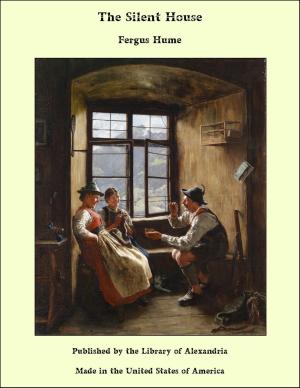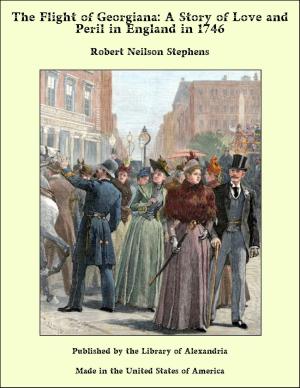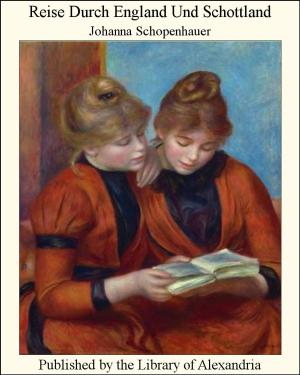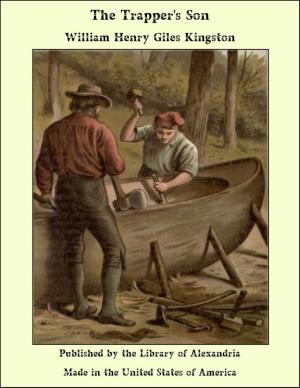A Strange World: A Novel (Complete)
Nonfiction, Religion & Spirituality, New Age, History, Fiction & Literature| Author: | Mary Elizabeth Braddon | ISBN: | 9781465625700 |
| Publisher: | Library of Alexandria | Publication: | March 8, 2015 |
| Imprint: | Language: | English |
| Author: | Mary Elizabeth Braddon |
| ISBN: | 9781465625700 |
| Publisher: | Library of Alexandria |
| Publication: | March 8, 2015 |
| Imprint: | |
| Language: | English |
A fair slope of land in buttercup-time, just when May, the capricious, melts into tender June—a slope of fertile pasture within two miles of the city of Eborsham, whose cathedral towers rise tall in the blue dim distance—a wealth of hedgerow flowers on every side, and all the air full of their faint sweet perfume, mixed with the odorous breath of the fast perishing hawthorn. Two figures are seated in a corner of the meadow, beneath the umbrage of an ancient thorn not Arcadian or pastoral figures by any means;—not Phillis the milkmaid, with sun-browned brow and carnation cheeks, not Corydon fluting sweetly on his tuneful pipe as he reclines at her feet;—but two figures which carry the unmistakable stamp of city life in every feature and every garment. One is a tall, slender girl of seventeen, with a pale, tired face, and a look of having outgrown her strength, shot up too swiftly from childhood to girlhood, like a fast-growing weed. The other is a man who may be any age from forty to sixty, a man with sparse grey hair crowning a high forehead, bluish-grey eyes, under thick dark brows, a red nose, a mouth that looks as if it had been made for eating and drinking rather than oratory, a heavy jaw, and a figure inclining to corpulence. The girl's eyes are large and clear, and changeful, of that dark blue-grey which often looks like black. The delicate young face possesses no other strong claim to be admired, and would be a scarcely noticeable countenance, perhaps, save for those grey eyes. The raiment of both man and girl is of the shabbiest. His threadbare coat has become luminous with much friction, a kind of phosphorescent brightness pervades the sleeves, like the oleaginous scum that pollutes the surface of a city river; the tall hat which lies beside him in the deep grass has a look of having been soaped. His boots have obviously been soled and heeled, and have arrived at that debatable period in boot-life when they must either be soled again or hie them straight to the dust-hole. The girl's gown is faded and too short for her long legs, her mantle a flimsy silken thing of an almost forgotten fashion, her hat a fabric of tawdry net and ribbon patched together by her own unskilled hands.
A fair slope of land in buttercup-time, just when May, the capricious, melts into tender June—a slope of fertile pasture within two miles of the city of Eborsham, whose cathedral towers rise tall in the blue dim distance—a wealth of hedgerow flowers on every side, and all the air full of their faint sweet perfume, mixed with the odorous breath of the fast perishing hawthorn. Two figures are seated in a corner of the meadow, beneath the umbrage of an ancient thorn not Arcadian or pastoral figures by any means;—not Phillis the milkmaid, with sun-browned brow and carnation cheeks, not Corydon fluting sweetly on his tuneful pipe as he reclines at her feet;—but two figures which carry the unmistakable stamp of city life in every feature and every garment. One is a tall, slender girl of seventeen, with a pale, tired face, and a look of having outgrown her strength, shot up too swiftly from childhood to girlhood, like a fast-growing weed. The other is a man who may be any age from forty to sixty, a man with sparse grey hair crowning a high forehead, bluish-grey eyes, under thick dark brows, a red nose, a mouth that looks as if it had been made for eating and drinking rather than oratory, a heavy jaw, and a figure inclining to corpulence. The girl's eyes are large and clear, and changeful, of that dark blue-grey which often looks like black. The delicate young face possesses no other strong claim to be admired, and would be a scarcely noticeable countenance, perhaps, save for those grey eyes. The raiment of both man and girl is of the shabbiest. His threadbare coat has become luminous with much friction, a kind of phosphorescent brightness pervades the sleeves, like the oleaginous scum that pollutes the surface of a city river; the tall hat which lies beside him in the deep grass has a look of having been soaped. His boots have obviously been soled and heeled, and have arrived at that debatable period in boot-life when they must either be soled again or hie them straight to the dust-hole. The girl's gown is faded and too short for her long legs, her mantle a flimsy silken thing of an almost forgotten fashion, her hat a fabric of tawdry net and ribbon patched together by her own unskilled hands.















